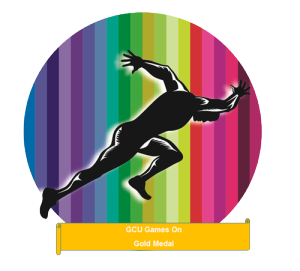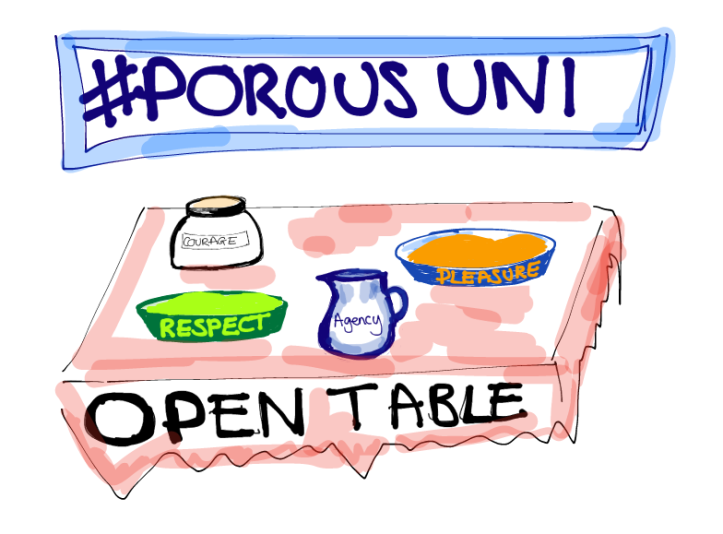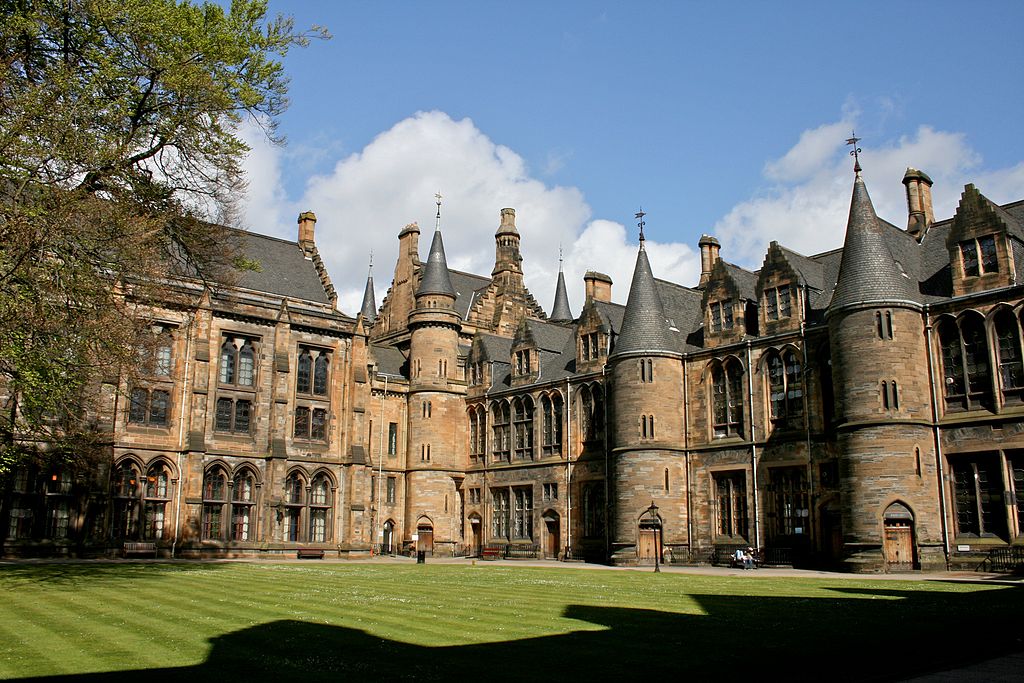The event was developed very rapidly: in fact there were only 3 weeks between an initial discussion around the possibility of doing “something for the Commonwealth Games”, to having a three week open, online event ready to go live with learners. Open educational practice, OERs and open systems were central to the development and story of GCU Games On. Openness allowed the team to take an agile educational development approach to creating a fun, open online learning experience. The event was also the first “course” to go live on Blackboard’s Open Education platform which was released in July 2014. The experience is now influencing future online developments within the institution.
Approach
Given the short timescales involved, the team faced a number of challenges including:
- Timing – most of our academic colleagues were on holiday or planning to go on holiday during the development phase.
- Content – with a number of key academic staff on holiday, where would /could we source/create relevant content?
- Interaction and dialogue – with few staff would it be possible to moderate any kind of online interaction/discussion?
- Budget and additional resource– there was no additional budget or resource allocation.
Drawing heavily on their personal experiences as well as current education developments, the team decided that the only realistic way forward was to develop something that took a more light touch, open, social and connected approach. The timescales involved required the team to make very rapid decisions and in a sense embody the spirit of social entrepreneurship that is central to the ethos of the University. The team had an opportunity to illustrate the potential for open educational development and the potential for an alternative approach to online/off campus opportunities to the dominant content heavy MOOC model.
Participation was at the heart of the design concept and the initial one page, A4 brief produced by the team. The event would run for 3 weeks, before, during and after the Glasgow 2014 Commonwealth Games. Each week would have a theme related to the Commonwealth Games and or Glasgow and at least one open sharing activity using Twitter. Tying in with the sporting theme participants would be able to “win” a digital medal (open badge) each week.
Delivery was initially planned through Coursesites (the freely available version of Blackboard). As Blackboard is GCU’s institutional VLE, using Coursesites was an obvious choice as there was no learning curve involved.
Over a three week period the team undertook a number of activities in parallel using a range of OERs, open and/or freely available software. The first stage was the development of a proof of concept site in Coursesites, including the badge workflow and digital wishing trees (embedded Padlet walls). The team used a Trello board as a light tough project management tool to keep track of tasks. The team also approached Blackboard about the possibility of gaining early access to their new Open Education platform. We developed an online “code of conduct” for participants and submitted and gained ethical approval to survey participants.
Using social media to encourage participation, communication and sharing between participants was central to the overall design concept. Using an international event such as the Commonwealth games provided an ideal focus for people who had never used Twitter before. The team were able to quickly repurpose an openly licenced 10 days of Twitter guide to a “getting started with Twitter” guide for participants. The team repurposed existing graphics from activities the University had been involved in around the Commonwealth Games to create badge icons and an overall visual identity for the event. A short teaser video was also produced using Videoscribe. Working with two key academics and a learning technologist, the team were able to create content and activities for each of the three weeks. The prototype site was presented to the Principal who gave her seal of approval on the 3rd of July. Over this period discussions with Blackboard also moved apace. We were given access to the new Open Education Platform and transferred our development to there.
Once final approval had been received the team then met with the University Marketing department to develop a marketing campaign. Due to the short time scales and lack of budget, social media was at the heart of this, particularly the use of the University’s twitter account. Joint press releases between GCU and Blackboard were developed. A landing site for the event on the University website was also created.
The ‘GCU Games On’ site opened for enrolment on 10 July, less than a month after the idea was first proposed.
Observations, problems, solutions
Open-ness was central to the success and indeed the team’s consideration of undertaking such a development in such a short time frame. The initial idea provided an ideal opportunity for the team to promote an open approach to delivering an educational experience. The team had confidence that they had an open platform which they could use, they would be able to use a number of existing OERs, and it provided an almost perfect opportunity to move from talking about badges to actually designing and issuing them.
The overall learning design had to be fairly light touch and very much activity based. The team wanted to make this a fun experience so they devised a core set of activities for each week as the event structure highlights.
Event Structure
- Week 1 – On your marks (16 – 22 July):
Getting started;
some history about Glasgow’s sporting tradition;
make your first wish;
the bronze medal challenge. - Week 2 – Go! (23 – 29 July):
Getting in the swing of competition;
some activities to help you prepare like an athlete;
make your second wish;
the silver medal challenge. - Week 3 – The finish line (30 July – 8 August):
Past the finishing line;
what does the future hold?;
make your final wish;
the gold medal challenge.
The team deliberately chose not to describe GCU Games On as a MOOC. It wasn’t a course, and the team could not predict if it would be massive or miniscule in terms of participation. Instead they focussed on its open and online aspects. Of course there are different flavours of open-ness. The Blackboard Open Education platform is open in one sense, as it is open to anyone with an internet connection to use, but it still requires users to create an account to access any of its content. Although the team had initial discussions about using more open platforms, given the time constraints involved, using a readily available, familiar platform was the most pragmatic solution. The team were very open in sharing their experiences with the wider community and although a relatively small scale project, it has proved that an open mind-set can allow for agility in educational development.
Evaluation
A user survey was circulated to all participants at the end of the event which attracted 211 registrations from 13 countries including the UK. The results of the survey correlated with other MOOC surveys in that almost all of the respondents had some form of higher education qualification and were over 26 years of age. More than half of the participants had no connection to GCU. Just under half (45%) stated that they took part to experience online learning at GCU. It attracted a number of educational professionals which could be explained in part by the promotion of the event through the Blended Learning Team’s network. Overall feedback was generally positive and the fun aspect of the event was highlighted by a number of respondents.
GCU Games On is an example of how, through utilising open approaches, a successful, open event based learning opportunity can be created in a short space of time.
Further information about the event is available from:
- GCU Games On Overview, Jisc/SHED meeting, 24/11/14
- GCU Games On
- How Sheila sees it - GCU Games On timeline of development
- GCU Games On Timeline on Youtube
- How Sheila sees it - GCU Games On open and online and not an M word in sight
- How Sheila sees it - summary of GCU Games On evaluation findings
by Sheila MacNeill, Glasgow Caledonian University
(January 2015)
Originally published on the OEPS Project blog
Image Source: GCU Games On Gold Finish digital badge (downloaded from How Sheila Sees it blog post)
Originally published on 11 September 2015 - 12:57pm • by Anna Page



